I have the following dataframe:
df = pd.DataFrame([
(1, 1, 'term1'),
(1, 2, 'term2'),
(1, 1, 'term1'),
(1, 1, 'term2'),
(2, 2, 'term3'),
(2, 3, 'term1'),
(2, 2, 'term1')
], columns=['id', 'group', 'term'])
I want to group it by id and group and calculate the number of each term for this id, group pair.
So in the end I am going to get something like this:
I was able to achieve what I want by looping over all the rows with df.iterrows() and creating a new dataframe, but this is clearly inefficient. (If it helps, I know the list of all terms beforehand and there are ~10 of them).
It looks like I have to group by and then count values, so I tried that with df.groupby(['id', 'group']).value_counts() which does not work because value_counts operates on the groupby series and not a dataframe.
Anyway I can achieve this without looping?



